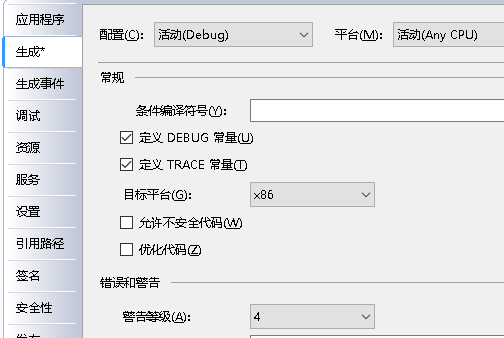C# 读取excel数据到datatable
在项目中使用到遇到了需要将excel文件导入到数据库中,在此做个总结记录,防止后面人踩坑。
开发环境:VS2008+Win10
第一种方式:Office.Interop.Excel方式 数据量大时有点慢

public static DataTable getExcelDataKHFY(string fileName, DataTable dt) { string[] names = GetExcelTableName(fileName); int ysCount = 0;//获取页数 string exname = ""; if (names.Length > 1) { Yx_Module.winChangeExcel win = new THKClient.Yx_Module.winChangeExcel(names); win.ShowDialog(); if (win.IsReturn) { ysCount = int.Parse(win.Excelid) + 1;//页码 exname = win.ExName;//选择的页名 } } DataTable result = dt; Microsoft.Office.Interop.Excel.Application xlApp = null; Microsoft.Office.Interop.Excel.Workbook xlWorkbook = null; try { xlApp = new Microsoft.Office.Interop.Excel.Application(); if (xlApp == null) return null; xlApp.Visible = false; xlWorkbook = xlApp.Workbooks.Open(fileName, 0, false, 5, "", "", false, Microsoft.Office.Interop.Excel.XlPlatform.xlWindows, "", true, false, 0, true, false, false); Dictionary<int, Microsoft.Office.Interop.Excel.Range> rowrange = new Dictionary<int, Microsoft.Office.Interop.Excel.Range>(); if (ysCount != 0) { try { //动态页插入数据 int i = ysCount; // Microsoft.Office.Interop.Excel.Worksheet sheet = (Microsoft.Office.Interop.Excel.Worksheet)xlWorkbook.Sheets[i];//根据页码 Microsoft.Office.Interop.Excel.Worksheet sheet = (Microsoft.Office.Interop.Excel.Worksheet)xlWorkbook.Sheets[exname];//根据页名获取 string str = sheet.Name; for (int rowIndex = 2; rowIndex < sheet.Cells.Rows.Count - 1; rowIndex++) { rowrange.Clear(); object[] parm = new object[result.Columns.Count]; for (int j = 0; j < result.Columns.Count; j++) { rowrange[j] = (Microsoft.Office.Interop.Excel.Range)(sheet.Cells[rowIndex, j + 1]); parm[j] = rowrange[j].Value2 == null ? "" : rowrange[j].Value2.ToString(); } rowrange.Clear(); if (parm[0].ToString().Trim().Length == 0) { break; } result.Rows.Add(parm); } } catch (Exception ee) { throw; } } else { for (int i = 1; i < xlWorkbook.Sheets.Count + 1; i++) { Microsoft.Office.Interop.Excel.Worksheet sheet = (Microsoft.Office.Interop.Excel.Worksheet)xlWorkbook.Sheets[i]; string str = sheet.Name; for (int rowIndex = 2; rowIndex < sheet.Cells.Rows.Count - 1; rowIndex++) { rowrange.Clear(); object[] parm = new object[result.Columns.Count]; for (int j = 0; j < result.Columns.Count; j++) { rowrange[j] = (Microsoft.Office.Interop.Excel.Range)(sheet.Cells[rowIndex, j + 1]); parm[j] = rowrange[j].Value2 == null ? "" : rowrange[j].Value2.ToString(); } rowrange.Clear(); if (parm[0].ToString().Trim().Length == 0) { break; } result.Rows.Add(parm); } } } xlWorkbook.Close(Type.Missing, Type.Missing, Type.Missing); xlApp.Quit(); } finally { Marshal.ReleaseComObject(xlWorkbook); Marshal.ReleaseComObject(xlApp); xlApp = null; List<Process> excelProcesses = GetExcelProcesses(); if (excelProcesses.Count > 0) { KillTheExcel();//杀死进程 } } return result; }
第二种方式:NPOI方式 此种方式最优

/// <summary>读取excel /// 默认第一行为表头 /// </summary> /// <param name="strFileName">excel文档路径</param> /// <returns></returns> public static DataTable Import(string strFileName) { DataTable dt = new DataTable(); HSSFWorkbook hssfworkbook; using (FileStream file = new FileStream(strFileName, FileMode.Open, FileAccess.Read)) { hssfworkbook = new HSSFWorkbook(file); } HSSFSheet sheet = hssfworkbook.GetSheetAt(0); System.Collections.IEnumerator rows = sheet.GetRowEnumerator(); HSSFRow headerRow = sheet.GetRow(0); int cellCount = headerRow.LastCellNum; for (int j = 0; j < cellCount; j++) { HSSFCell cell = headerRow.GetCell(j); dt.Columns.Add(cell.ToString()); } for (int i = (sheet.FirstRowNum + 1); i <= sheet.LastRowNum; i++) { HSSFRow row = sheet.GetRow(i); DataRow dataRow = dt.NewRow(); for (int j = row.FirstCellNum; j < cellCount; j++) { if (row.GetCell(j) != null) dataRow[j] = row.GetCell(j).ToString(); } dt.Rows.Add(dataRow); } return dt; }
第三种方式:OLEDB方式 需要将程序设置为X86运行




public static DataTable ExcelToDataTable(string filePath) { string connStr = ""; string fileType = System.IO.Path.GetExtension(filePath); if (string.IsNullOrEmpty(fileType)) return null; if (fileType == ".xls") connStr = "Provider=Microsoft.Jet.OLEDB.4.0;" + "Data Source=" + filePath + ";" + ";Extended Properties=\"Excel 8.0;HDR=YES;IMEX=1\""; else connStr = "Provider=Microsoft.ACE.OLEDB.12.0;" + "Data Source=" + filePath + ";" + ";Extended Properties=\"Excel 12.0;HDR=YES;IMEX=1\""; string sql_F = "Select * FROM [{0}]"; DataSet ds = new DataSet(); //using (OleDbConnection myConn = new OleDbConnection(connStr)) //{ // using (OleDbDataAdapter myCommand = new OleDbDataAdapter(sql_F, myConn)) // { // myConn.Open(); // myCommand.Fill(ds); // } //} //if (ds == null || ds.Tables.Count <= 0) return null; //return ds.Tables[0]; OleDbConnection conn = null; OleDbDataAdapter da = null; DataTable dtSheetName = null; try { // 初始化连接,并打开 conn = new OleDbConnection(connStr); conn.Open(); // 获取数据源的表定义元数据 string SheetName = ""; dtSheetName = conn.GetOleDbSchemaTable(OleDbSchemaGuid.Tables, new object[] { null, null, null, "TABLE" }); // 初始化适配器 da = new OleDbDataAdapter(); for (int i = 0; i < dtSheetName.Rows.Count; i++) { SheetName = (string)dtSheetName.Rows[i]["TABLE_NAME"]; if (SheetName.Contains("$") && !SheetName.Replace("'", "").EndsWith("$")) { continue; } da.SelectCommand = new OleDbCommand(String.Format(sql_F, SheetName), conn); DataSet dsItem = new DataSet(); da.Fill(dsItem); ds.Tables.Add(dsItem.Tables[0].Copy()); } } catch (Exception ex) { } finally { // 关闭连接 if (conn.State == ConnectionState.Open) { conn.Close(); da.Dispose(); conn.Dispose(); } } return ds.Tables[0]; }




